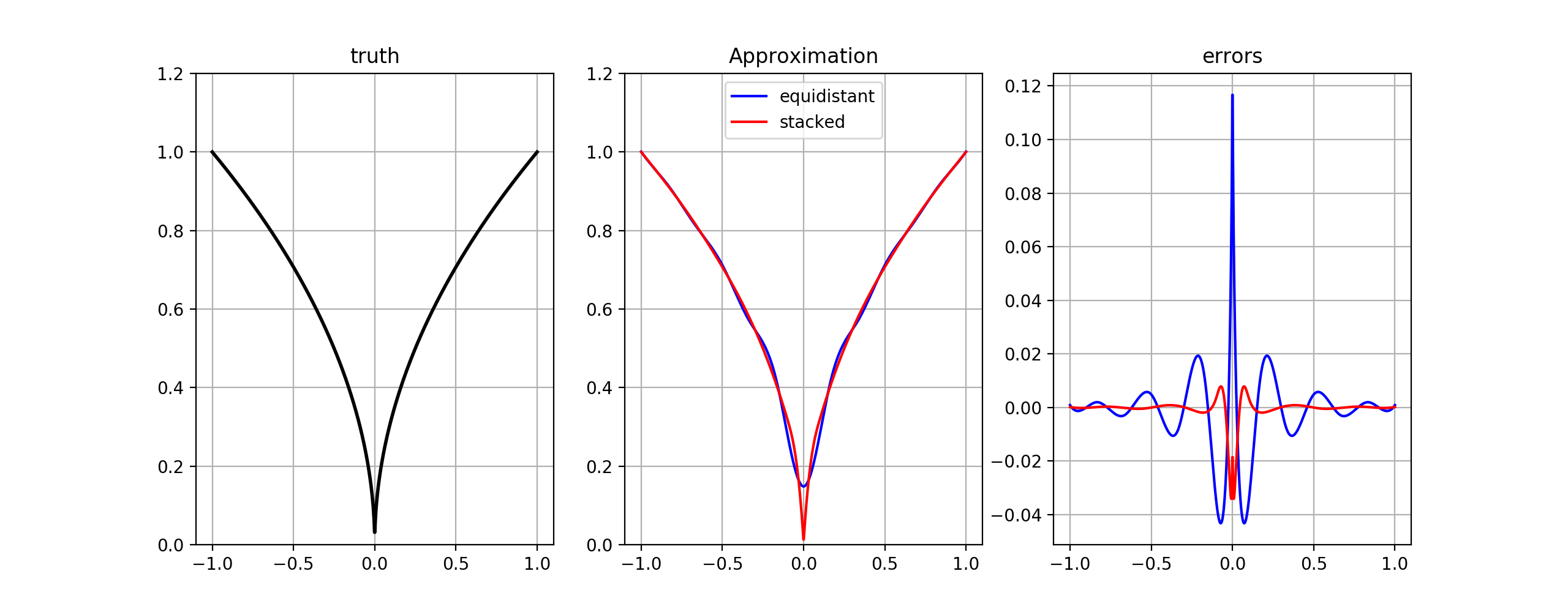

- This package implements bspline and linear interpolation in julia
- For most purposes, Interpolations.jl will be preferrable to this package.
- However, there are some features which are available here, and not there.
- the method
getTensorCoef is a very efficient algorithm to compute approximating coefficients from a tensor product of basis matrices. it is efficient because it never forms the tensor product.
- the package allows low-level access to objects such as spline knot vectors. Suppose you want to have a knot vector with a knot multiplicity in the interior knot span to approximate a kink. For example,
knots = vcat(lb,-0.5,0,0,0.5,ub)
- Documentation is non-existent. Please look at the tests. Sorry.
using ApproXD
f(x) = abs.(x).^0.5
lb,ub = (-1.0,1.0)
nknots = 13
deg = 3
# standard case: equally spaced knots
params1 = BSpline(nknots,deg,lb,ub)
nevals = 5 * params1.numKnots # get nBasis < nEvalpoints
# myknots with knot multiplicity at 0
myknots = vcat(range(-1,stop = -0.1,length = 5),0,0,0, range(0.1,stop = 1,length =5))
params2 = BSpline(myknots,deg) # 0: no derivative
# get coefficients for each case
eval_points = collect(range(lb,stop = ub,length = nevals))
c1 = getBasis(eval_points,params1) \ f(eval_points)
c2 = getBasis(eval_points,params2) \ f(eval_points)
# look at errors over entire interval
test_points = collect(range(lb,stop = ub,length = 1000));
truth = f(test_points);
p1 = getBasis(test_points,params1) * c1;
p2 = getBasis(test_points,params2) * c2;
e1 = p1 - truth;
e2 = p2 - truth;

